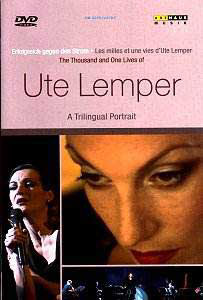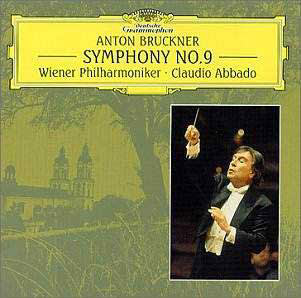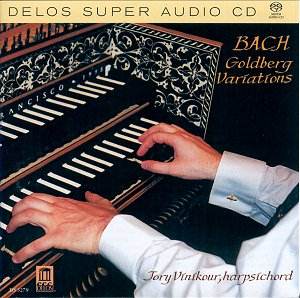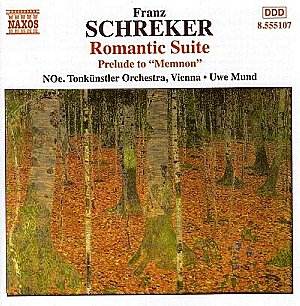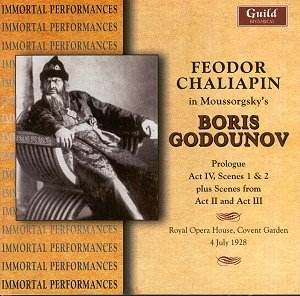 Composer: Modest Mussorgsky
Composer: Modest Mussorgsky
Works: Boris Godunov, Completed and orchestrated by Rimsky-Korsakov
Performers: Boris Feodor Chaliapin (bass), Tchelkalov Astride Barrachi (baritone), Shiusky Angelo Bada (tenor), Dimitri Dino Borgioli (tenor), Varlaam Salvatore Baccaloni (bass), Lavretzky Dennis Noble (bass), Tcheraiakovsky Astride Baracchi (bass), Innocente Octave Dua (tenor), Pimen Luigi Manfrini (actually Nicola Moscona) (bass), Orchestra and Chorus of The Royal Opera, Covent Garden
Recording: Live performance recorded on 4 July 1928
Label: Guild Historical 2206
The operatic landscape of the late 19th century was marked by the emergence of unique voices that challenged the conventions of the time, and Modest Mussorgsky stands as a towering figure among them. His monumental opera “Boris Godunov,” originally composed in 1868 and later orchestrated by Rimsky-Korsakov, reflects the tumultuous political and social currents of Russia. The work’s exploration of power, madness, and the human condition has made it a staple of the operatic repertoire, and this 1928 recording captures a pivotal moment in its history, featuring the indomitable Boris Feodor Chaliapin, whose portrayal of the titular character is often regarded as the definitive interpretation.
Chaliapin’s performance is a masterclass in dramatic interpretation. His vocal technique, while perhaps not pristine by today’s standards, is imbued with an emotional depth that transcends mere technicality. The way he navigates the character’s psychological complexity—from the fervent prayer of “Boris, you are the Tsar” to the anguished cries of fear and remorse in his death scene—reveals a profound understanding of the character’s inner turmoil. The nuances of his mezza voce and the understated gestures allow the drama to unfold organically, creating a palpable tension that captivates the listener. This is particularly evident in the climactic moments of the final scene, where his voice wavers between strength and vulnerability, painting a vivid portrait of a man crushed by the weight of his crown.
The orchestral and choral support from the Royal Opera at Covent Garden is commendable, though it is clear that the performance is dominated by Chaliapin’s remarkable presence. The chorus delivers a robust sound, particularly in the opening scenes, enhancing the communal aspect of the opera’s narrative. However, individual voices within the cast occasionally struggle to rise to the level of Chaliapin’s interpretation. Notably, the baritone Tchelkalov Astride Barrachi and tenor Dimitri Dino Borgioli provide solid performances, yet they lack the dramatic punch that defines Chaliapin’s portrayal. The conducting of Vincenzo Bellezza, while competent, does not possess the imaginative flair of contemporaries like Albert Coates, whose collaborations with Chaliapin are legendary.
Technically, the recording quality reflects the limitations of its time, yet Guild Historical has done commendable work in transferring the original transcription discs. The sound engineering allows for a surprisingly clear representation of the vocal lines and orchestral textures, capturing the immediacy of a live performance. The extensive restoration efforts, including the integration of the missing Pimen Narrative sung by Nicola Moscona, provide a fuller context to this historic event. The audio fidelity, while not pristine by modern standards, successfully conveys the atmosphere of the Covent Garden stage in 1928.
Comparisons with later interpretations of “Boris Godunov” reveal that Chaliapin’s performance remains unrivaled in its emotional gravity. While contemporary singers may possess greater technical agility and a more polished sound, few can match the sheer dramatic intensity that Chaliapin brings to this role. His ability to embody the character so completely resonates with the listener long after the final notes fade. This recording serves as a vital document, not just of a performance but of an era in which opera was a living, breathing art form, capable of stirring profound emotional responses.
This recording of “Boris Godunov” stands as a testament to Chaliapin’s extraordinary artistry and Mussorgsky’s powerful vision. The collaboration between the performer and the work is nothing short of alchemical, resulting in an experience that transcends the confines of time. Guild Historical’s dedication to preserving such monumental performances ensures that Chaliapin’s legacy endures, allowing new generations to appreciate the depths of his craft and the haunting beauty of Mussorgsky’s masterpiece.
